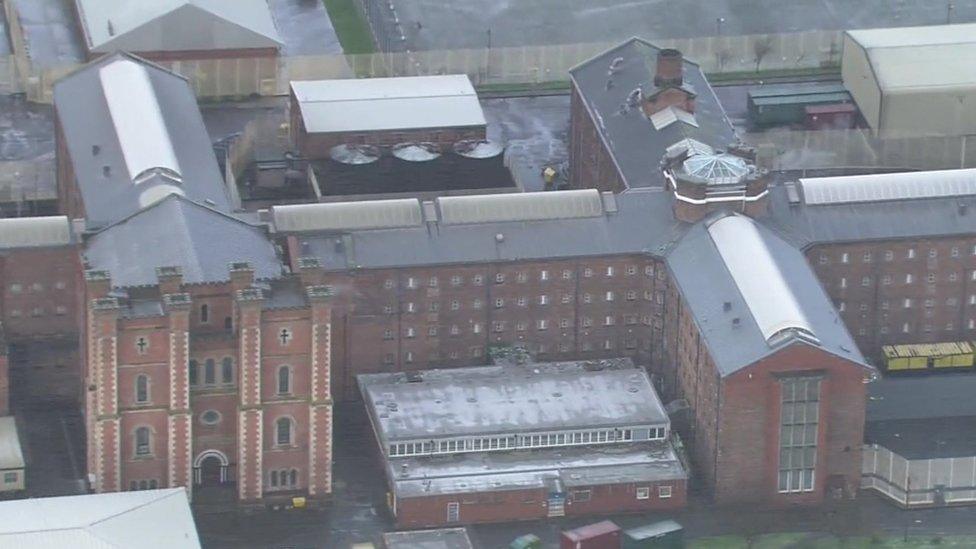How Liverpool prison became UK's 'worst jail'
- Published
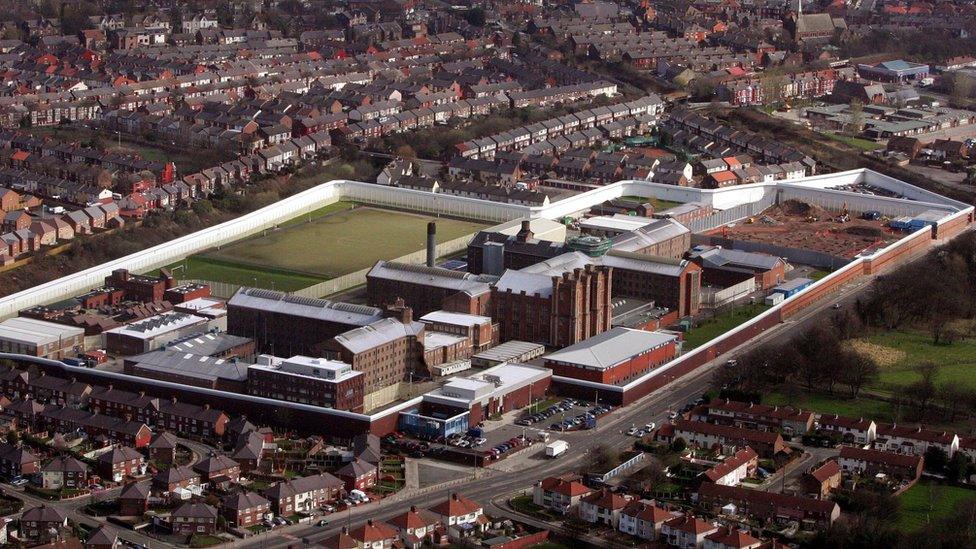
The damning report on Liverpool prison by HM Inspectorate of Prisons, published on Friday, says conditions in the establishment are "squalid". But this is just the latest in a series of major problems faced by the jail.
With England's prisons regularly described as being in crisis, because of budget and staff cuts, it takes a special level of incompetence to be called the country's worst jail.
But that is precisely the label bestowed on HMP Liverpool last month by many, including a former prisons inspector, after the BBC revealed the appalling failures at the prison.
The living conditions: rats, cockroaches, blocked toilets and pools of urine, for instance, said to be the worst that inspectors had ever seen, were described by the then justice secretary as "shocking".
But few within the prison service could have been surprised. Not only had they overseen the emerging squalor in the prison, but they'd been told repeatedly over a number of years about the problems.
One of the most damning passages in the leaked report said: "We could see no credible plan to address these basic issues. On the contrary, the presence of inspectors seemed to provoke some piecemeal and superficial attempts at cleaning and the like, but the fear was that this would stop as soon as we left, which is clearly what happened after the last inspection."
One statistic in the document hammers home the point: of the 89 recommendations made by inspectors in 2015, only 22 had been fully achieved.
The prison inspectors' view of the prison service, and its commitment to improving Liverpool, is supported by numerous responses to previous critical findings.

What inspectors said
2003 Jail is unclean, with an infestation of cockroaches, and broken windows
2009 A few cells were simply unfit for use. The use of unsuitable accommodation… requires investment
2012 The prison struggled to keep old and sometimes literally crumbling buildings decent and habitable
2014 The general environment needed urgent improvement and meaningful investment
2015 The very poor quality of the environment at Liverpool remained a fundamental challenge. The accommodation (is) dirty, overcrowded and poorly equipped

Reacting to the latest report, Michael Spurr, chief executive of Her Majesty's Prison & Probation Service, said the conditions found by inspectors at the prison were "unacceptable".
And he added: "We are committed to fixing this, have already made changes where we can, and have published a comprehensive action plan to address the chief inspector's concerns."
Some improvements were made. The 2012 and 2014 inspection reports both noted progress and praised the leadership of the jail. But throughout, the physical conditions there remained challenging. "Some seemingly intractable problems," wrote inspectors in an otherwise fairly positive report in 2014.
Money
At the heart of the debate about Liverpool is the amount of money that's been invested in the prison.
Figures from the National Offender Management Service shows the prison's budget has fallen from almost £26m in 2011-12 to less than £21.5m in 16-17, a decrease of more than 17%.
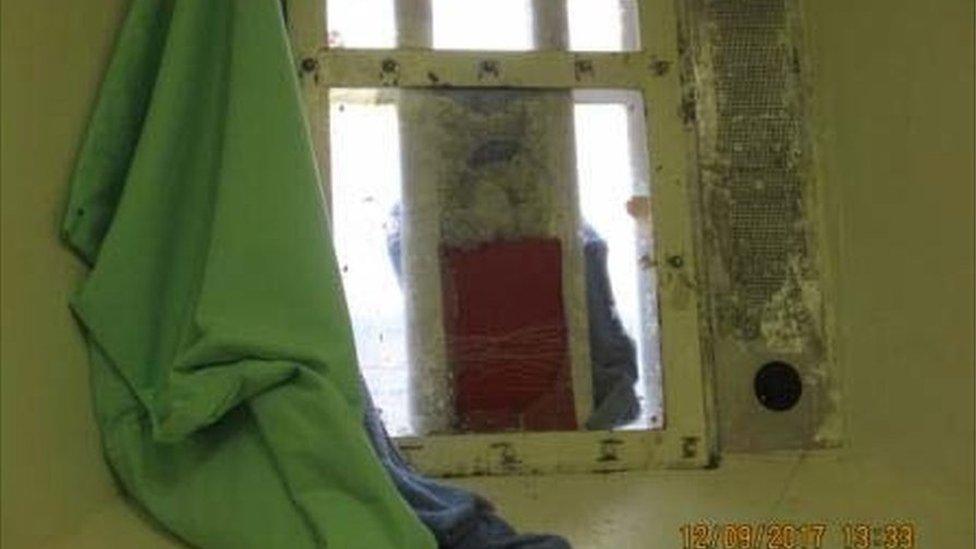
The inspectors also found cells with broken windows and cracked glass
Budgets across the Prison Service fell at the same time, down 22% between 2009-2010 and 2016-2017 according to the Institute for Government., external But even if Liverpool's reduction has been slightly less, its starting point, in terms of need, was greater than that of many other prisons.
Staffing was also slashed.
The safe staffing ratio at Liverpool - and many other jails - was considered to be one prison officer to 30 inmates. At Liverpool in recent years, it has sometimes fallen to one to 100.
Some night shifts have left five prison officers looking after approximately 1,100 inmates, although new prison officers have been hired in recent months.
Healthcare
Since 2011, there have been at least 17 suicides in the prison: one of the highest numbers in England, though a problem affecting most jails in recent years.
Organisations including the Howard League for Penal Reform, external say a lack of staff, providing healthcare, has contributed to the number of suicides in the prison system but the widespread availability of illegal drugs had added to the problems within the prison's healthcare regime.
High numbers of inmates enter the jail with existing drug problems and mental health conditions, and the plentiful supply of drugs, including in recent years psychoactive substances like spice, worsens their health, putting further pressure on the healthcare unit.
Until January 2015, care, commissioned by NHS England (NHSE), was provided by the Liverpool Community Health Trust, but so poor was its performance, external that it was effectively sacked, with Lancashire Care NHS Foundation Trust asked to take over.
NHSE gave the new provider £200,000 immediately to hire new staff and equipment. But having subsequently awarded the trust an £8.3m contract, it insisted on annual efficiency savings, which the trust found undeliverable.
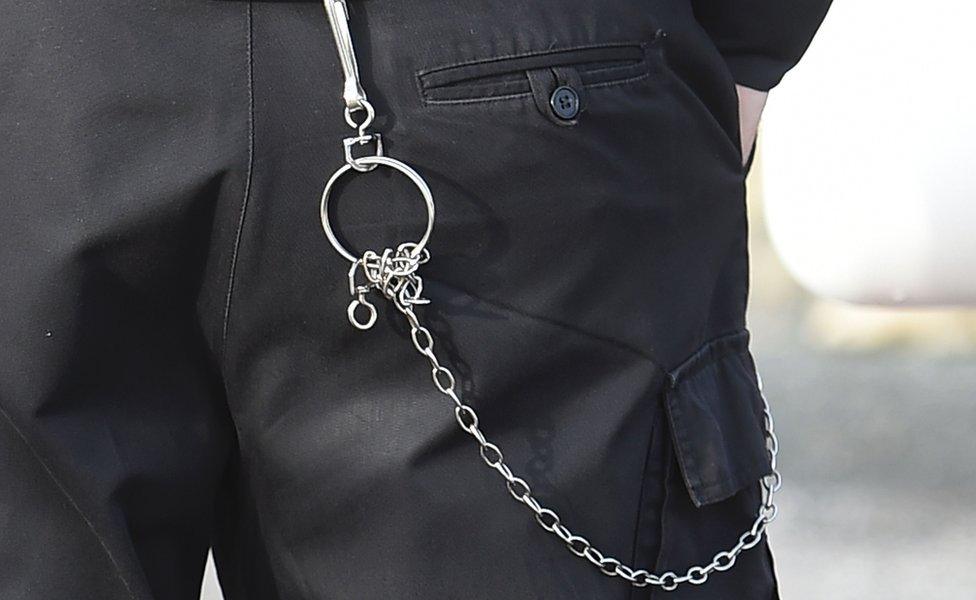
Understaffing has been a major problem for Liverpool prison
Problems hiring medics meant the trust had to rely on expensive agency staff and it said it had to spend significant amounts of its own money subsidising the service.
Lancashire Care says it has made improvements since 2015 but it's no surprise that it is walking away when it ends in March. Unsurprisingly, no provider has bid for the contract.
The lack of prison officers has meant that healthcare staff have been unable to carry out medication rounds. And a lack of specialist secure beds means that patients with acute mental health conditions have not been able to move out of the jail in a timely manner.
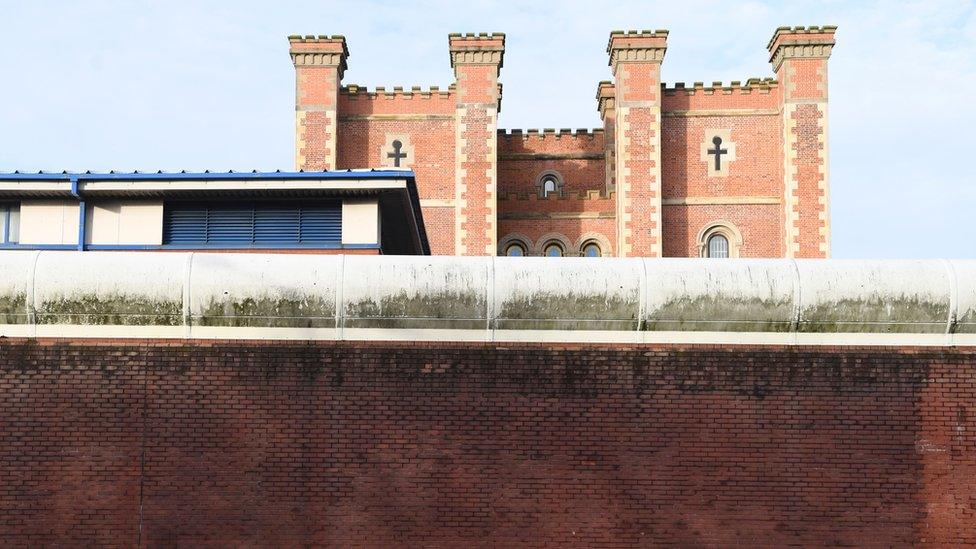
The jail has lacked secure beds for inmates with acute mental health conditions
Beyond this, there is one other contributory factor: public opinion. There is little pressure on ministers, the Prison Service or the NHS to provide good care to prisoners.
Certainly, some people have a harsh view of prisoners, and would actively support the squalor in Liverpool, as my social media feed has confirmed.
But the vast majority of prisoners - in Liverpool as elsewhere - will be released, and as many experts have pointed out, if they're treated as animals in prisons, why should we expect them to behave any better on the outside?
- Published19 December 2017
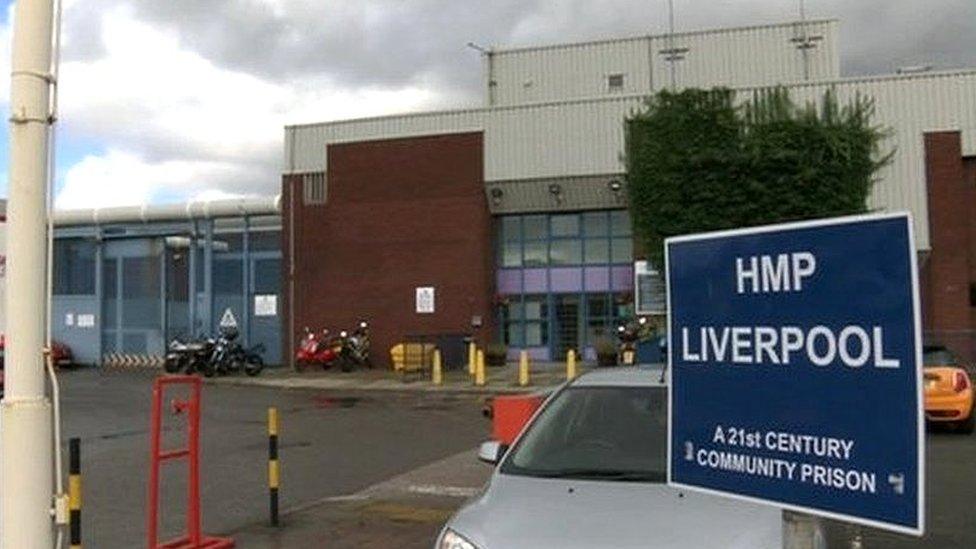
- Published19 January 2018
